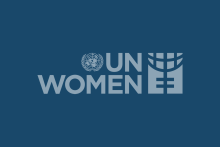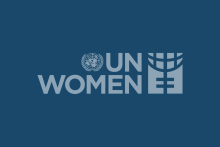Dubai/New York, 4 December 2023 – On today’s gender day at the UN climate conference, COP28 in Dubai, UN Women launched its “Feminist Climate Justice: A Framework for Action” report.
By 2050, climate change will push up to 158 million more women and girls into poverty and lead to 236 million more women into hunger. The climate crisis fuels escalating conflict and forced migration, in a context of exclusionary, anti-rights political rhetoric targeting women, refugees, and other marginalized groups.
“Climate change is creating a downward spiral for women and girls,” said Sarah Hendriks, UN Women Deputy Executive Director a.i. “We need to transform economies away from extraction and pollution and integrate women’s rights into all aspects of climate policy and financing. UN Women is calling for feminist climate justice, and a world in which everyone can enjoy their human rights, and flourish on a planet that is healthy and sustainable.”
As climate changes pushes millions of women into poverty, UN Women calls for a new Feminist Climate Justice Approach
The feminist climate justice approach centres around four key areas:
1) Recognizing women’s rights, labour, and knowledge
Policy needs to prioritize the rights of women and other groups that face discrimination, because it undermines their resilience to climate impacts. Women shoulder disproportionate unpaid care responsibilities, have fewer economic resources than men, and have lower levels of literacy and access to technology. These inequalities are further exacerbated by climate change.
Alongside scientific knowledge, decision-makers need to recognize the expertise that women, including indigenous, rural and young women have. Only if this knowledge is fully taken into consideration, will effective climate adaptation policies be developed and implemented.
2) Redistributing economic resources
Since women are already disadvantaged in economies, in terms of wage gaps, unequal access to jobs, land, technology and education, it is essential to prioritize gender equality in just transitions. Otherwise, women’s inequality will be further entrenched. Reversing climate change will require moving resources away from extractive and environmentally damaging activities, and towards policies that prioritize care for people and the planet.
Governments need to raise resources through progressive taxation on the wealthiest people and companies to pay for social welfare programmes to support women’s resilience.
For example, school-based food programmes are not only able to alleviate some of women’s unpaid care work by supplying children with nutritious food, but can further support feminist climate policy by sourcing meals from small-scale, environmentally friendly women farmers.
3) Representation of women’s voices
Women human rights defenders and feminist groups are pushing for gender equality to be integrated into environmental policymaking at all levels. But they are often excluded from power.
Research shows that women’s representation in parliaments is associated with stronger environmental policies, but globally, women only hold around one quarter of seats. Despite the fact that women are been at the forefront of environmental activism for decades, women make up only 15 per cent of environment ministers at the national level.
While women’s participation in national delegations to the UN COP climate conferences rose from 30 to 35 per cent from 2012 to 2022, the proportion of delegations headed by women declined slightly from 21 to 20 per cent over the same period.
4) Repairing inequalities and historical injustices
Financial commitments to fight climate change must focus on the people and countries most at risk. Since 1850, countries in the global north have been responsible for 92 per cent of the world’s excess emissions, creating a huge climate debt.
To address that imbalance, the report calls on wealthy countries to meet their commitments to finance climate programmes and ensure that funds go to the most vulnerable countries and grassroots women’s organisations. Only 3 per cent of climate development aid prioritizes gender equality. Polluting corporations need to be taxed and regulated to prevent future harm to the climate.
The COP28 climate conference, which inaugurates the Global Stocktake, is a crucial milestone to make countries accountable for their climate action.
“Today is gender day at COP 28, it is also finance day. It is important that these issues have been brought together because even though women are bearing the brunt, women’s organizations are being starved of the finance they need to do their vital work on the frontlines of climate change. This needs to change,” remarked Laura Turquet, UN Women Senior Policy Expert and Lead Author of the Feminist Climate Justice Report.
While a loss and damage fund was agreed upon at the COP27 in 2022, contributions are voluntary and no mechanism has been established to hold wealthy countries to account for historical environmental damage and its consequences, such as the loss of land, housing, and crops because of extreme weather events. Non-economic loss and damage, like rising levels of gender-based violence and unpaid care work, which are devastating consequences of climate change for women and girls also need to be taken into account by the new fund.
At climate conferences, and in all other spaces where climate policies are discussed, leaders and policymakers must ensure that their responses to environmental challenges integrate the needs and rights of the world’s women and girls.
Maria Reyes, Representative of Fridays for Future MAPA and the Feminist Action for Climate Justice Action Coalition said, “as young people from the Global South we know what climate justice looks like, because apart from being at the frontlines of the climate crisis, we are also at the forefront of the solutions, building with our communities the systems that we cannot live without as we dismantle the systems that we cannot live within. As we infiltrate institutional spaces like the COP28, we need to make use of data and research, like the Feminist Climate Justice Framework, as tools for transformative change.”
About UN Women
UN Women is the United Nations entity dedicated to gender equality and the empowerment of women. A global champion for women and girls, UN Women was established to accelerate progress on meeting their needs worldwide.

